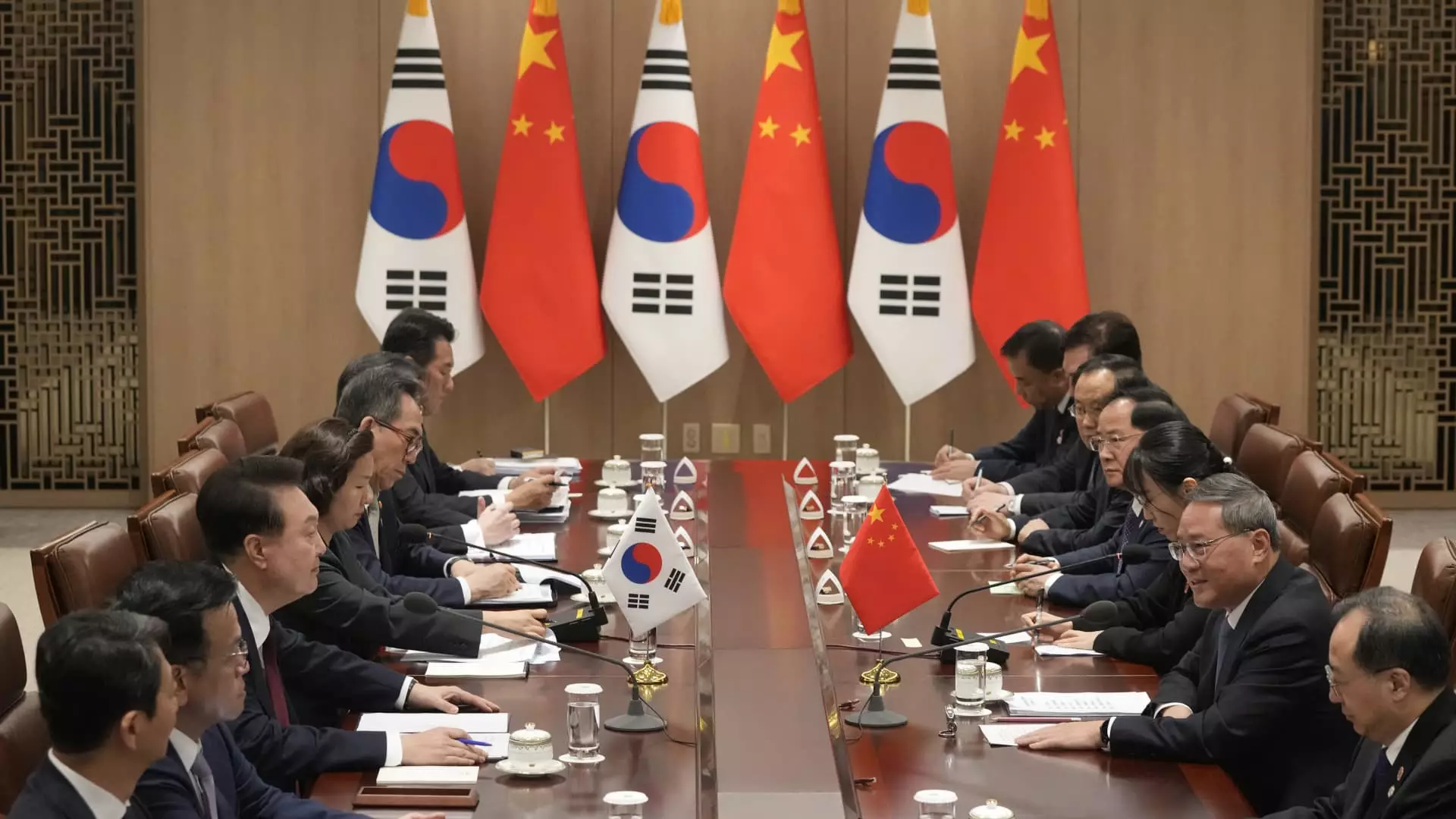During a trilateral summit in Seoul, Chinese Premier Li Qiang emphasized the importance of rejecting “protectionism” and maintaining free trade among China, Japan, and South Korea. This call for cooperation was aimed at preventing economic and trade issues from being politicized or turned into security matters. Li urged the countries to view each other as partners and opportunities for development, emphasizing the need for mutual benefit in their economic relationships.
Stabilizing Relations and Enhancing Cooperation
The trilateral summit, the ninth of its kind, marked the first meeting between the leaders of China, Japan, and South Korea in over four years. The joint statement released after the summit outlined a commitment to “institutionalize” three-way cooperation through regular summits and ministerial meetings. Additionally, the leaders agreed to accelerate negotiations for a free trade agreement that would be fair, comprehensive, and of high quality.
Geopolitical Implications
The summit was seen as a critical step in stabilizing relations among the three countries, particularly in light of regional security challenges such as nuclear and missile threats from North Korea. China’s motivations in seeking closer ties with Japan and South Korea were viewed as an attempt to counterbalance the growing cooperation between the United States, Japan, and South Korea. The looming security threats in the region underscored the need for collaborative efforts towards denuclearization and political settlement on the Korean Peninsula.
In addition to security concerns, the leaders focused on ensuring a level playing field for global trade and investment. While acknowledging China as a significant market, experts highlighted the challenges of balancing economic interests with geopolitical tensions. The need for transparent communication in areas such as export control was emphasized, pointing to the complexities of navigating the economic landscape in East Asia.
Against the backdrop of rising tensions in the region, efforts to maintain stable relationships between China, Japan, and South Korea were highlighted. Bilateral talks between Chinese Premier Li and the leaders of Japan and South Korea touched on a range of issues, including the situation in the South China Sea and developments in Taiwan. The importance of peace and stability across the Taiwan Strait was underscored, reflecting broader concerns within the international community.
Challenges Ahead
As the trilateral summit concluded, experts pointed to the continued complexities of balancing economic cooperation with geopolitical realities. While all three countries recognized the importance of engaging with China as a major market, the need to navigate security concerns and maintain regional stability remained pressing. Finding a way to ensure stability in economic relations amidst shifting security dynamics posed a significant challenge for China, Japan, and South Korea.
Overall, the trilateral summit served as a platform for dialogue and cooperation, emphasizing the shared interests and challenges faced by China, Japan, and South Korea in the East Asian region. By upholding free trade principles and promoting mutual benefit, the countries hoped to strengthen their economic ties while navigating complex geopolitical realities.


Leave a Reply